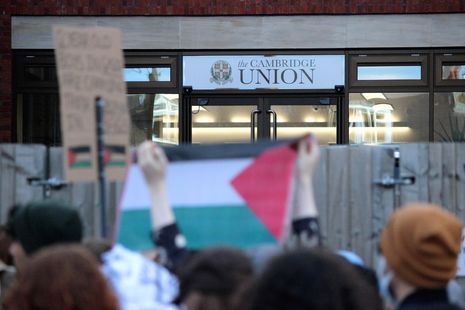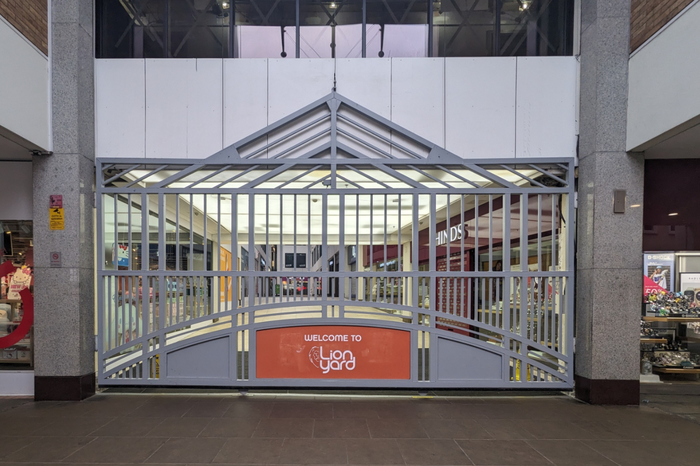Why free speech in Cambridge could be under threat
In light of Suella Braverman’s recent criticism, Calum Murray explores whether the University has a free speech problem

“The conceit of our universities is that they’re bastions of free speech, enlightened thinking and eloquent debate. However, at Cambridge last week, rather than engage in coherent, informed discussion about a complex matter, students and pro-Palestinian protestors instead preferred to “cancel” me” reads Suella Braverman’s latest piece in The Telegraph, written in response to protestors at Cambridge’s Palestine encampment ignoring her during her visit last week.
This article represents the latest installment in a seemingly endless stream of criticism by (mostly right-wing) politicians that free speech is under threat at universities across the country. Despite these claims, research carried out by King’s College London last September found that 65% of students polled said “free speech and robust debate are well protected at their institution”. Opinions are sharply divided on whether students have become unwilling to listen to alternative perspectives, or whether complaints of this nature represent baseless “culture war” agitation, seeking to excuse genuinely harmful and discriminatory rhetoric.
“in the current climate, people are very quick to try to shut down perspectives they do not agree with”
Cambridge Union president Neha Pauly told me that “in the current climate, people are very quick to try to shut down perspectives they do not agree with.” She added, “I do believe it is important you have the ability to speak freely about your views and engage in the open exchange of ideas. Often, because of the polarisation we see around us, that is just not possible.” Through the Union, Neha hopes to provide what she calls “one of the only places in Cambridge for free speech to exist in the way it does”. In Neha’s eyes, the beauty of the Union stems from the fact that a diversity of opinion and lived experience is represented. This means inviting speakers from across the political spectrum – from PayPal co-founder Peter Thiel to Palestinian rapper and activist Saint Levant.
While the Union has often been criticised for inviting controversial speakers like Thiel, Neha argued that we should seek to engage with views like these, provided there is the opportunity “for attendees to engage in respectful discussion with these speakers and put questions to them if they do not agree with some of their views”.
“I do believe listening and hearing from people who might have potentially inflammatory views is important,” she said, reasoning that “these people exist in society regardless and these views exist in society regardless – to exist in your own political vacuum and pretend like these views do not exist is reckless.”
“Suella Braverman is merely fanning the flames of a culture war, trying to excuse harmful rhetoric”
Sometimes, however, speech can go beyond inflammatory, to become genuinely harmful. Cambridge Student Union BME officer Maroof Rafique told me that “when harmful or discriminatory views are expressed by speakers, academics, or fellow students, it creates a hostile, marginalised, and unwelcoming environment, undermining the sense of belonging and safety for black and minority ethnic students”. Rafique believes that this not only encourages “hate speech in common folks” but also affects “student’s mental wellbeing,” especially since they are “already navigating centuries of institutional racism and microaggressions within the University”.
In a damning assessment of calls for greater free speech, Rafique said, “claims that students are unwilling to engage in debate and seek to shut down opposing views often serve as a pretext to allow harmful speech to go unchallenged.”
Speakers and academics whose comments have actively contributed to making certain students feel unsafe or unwelcome have often been defended on the grounds of free speech, including ‘race-realist’ philosophy fellow Nathan Cofnas or ‘gender critical’ speaker Helen Joyce, who spoke at Caius last year, attracting significant backlash.
Similar concerns have been raised in relation to the University’s new free speech code, which was adopted following last year’s Higher Education (Freedom of Speech) Act. Caius Master Professor Pippa Rogerson previously told Varsity that she was “terribly worried” about the code’s encouragement of controversial or challenging speech and how this may conflict with duties to prevent discrimination under equalities legislation. Several academics have blamed the law for the University’s inability to properly sanction Cofnas.
It must be remembered, however, that concern about free speech is neither confined to the political right nor always aimed at permitting harmful and discriminatory rhetoric. Cambridge’s vice-chancellor, Deborah Prentice, has claimed that she can “remember being able to talk much more freely than I see people able to talk now”. In launching her ‘Dialogues’ initiative, she hopes to provide an opportunity for people to discuss important and controversial issues in a measured and respectful way. Suella Braverman is merely fanning the flames of a culture war, trying to excuse harmful rhetoric, but not applying the same standards to those she disagrees with. However, engagement with a variety of perspectives in a measured and respectful way remains something everyone could benefit from, regardless of their political persuasion.
 News / Deborah Prentice overtaken as highest-paid Russell Group VC2 February 2026
News / Deborah Prentice overtaken as highest-paid Russell Group VC2 February 2026 News / Christ’s announces toned-down ‘soirée’ in place of May Ball3 February 2026
News / Christ’s announces toned-down ‘soirée’ in place of May Ball3 February 2026 Fashion / A guide to Cambridge’s second-hand scene2 February 2026
Fashion / A guide to Cambridge’s second-hand scene2 February 2026 News / Downing Bar dodges college takeover31 January 2026
News / Downing Bar dodges college takeover31 January 2026 Comment / Men at Cambridge are experiencing equality2 February 2026
Comment / Men at Cambridge are experiencing equality2 February 2026










